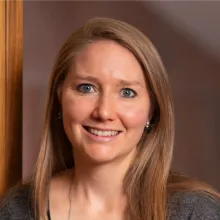Whole-of-population linked data project
This project will create a novel whole-of-population linked data platform to provide strong evidence on health and health care to inform health policy and practice.
Project status
Content navigation
About

This project uses novel whole-of-population linked data, including data from the Multi-Agency Data Integration Project (MADIP), to provide evidence on health and health care in Australia. Working in partnership with researchers and key organisations — including the Australian Bureau of Statistics, the Australian Institute of Health and Welfare and the Heart Foundation — we use these data to answer partner priority research questions, centred on three themes.
Theme 1 – Variation in fatal burden of disease
There is a huge opportunity for identifying potential population health gain within Australia by systematically quantifying socioeconomic variation in fatal burden of major diseases. Using Census linked to mortality data, we quantify inequalities in all-cause and cause-specific mortality and in life expectancy. We are using this information to develop an Index of Preventive Potential, which may be a useful tool for prioritising action.
Theme 2 – Variation in health care
Australia’s health care system is built on equity principles but achieving equity in practice is difficult. Using a variety of linked administrative datasets available through the MADIP, we are investigating variation in health care, which includes projects on out-of-pocket costs and preventive cardiovascular disease care. Our findings will inform the community, practitioners, and policymakers, with the aim of improving health and health equity in Australia.
Theme 3 – End-of-life care
The need for appropriate end-of-life care is recognised but evidence on where Australians die and the support they receive is fragmented. We are using multiple linked datasets to examine social circumstances, residential location, and health and aged care service use in the last year of life, particularly for people living with cardiovascular disease. This work has huge potential to fill gaps in knowledge on end-of-life pathways and inform action.
Collaborating on linked data
On 10 February 2021, the Linked Data for Better Health team at ANU hosted a forum at the National Portrait Gallery in Canberra on using the Multi-Agency Data Integration Project (MADIP) data asset to answer policy-relevant questions on health and health care in Australia. The event provided an opportunity to learn about the available data, how to access it, and how it is currently being used.
Attended by 130 people, from academia, non-government organisations, and state and commonwealth government departments and institutions, the event highlighted the added value of collaboration between researchers and policy practitioners to make the best use of this valuable data resource to provide robust evidence to inform policy and practice.
A summary of the event, including the program and presentation slides, is available here, and will be of interest to policy makers and researchers working on a range of issues related to population health.
The team is looking forward to collaborating widely to use the MADIP data to answer important policy questions for better health.
This project has been supported by an NHMRC Partnership Grant (#1134707), with contributions from ABS, AIHW and Heart Foundation.
Partnerships
Administering Institution:
The Australian National University, National Centre for Epidemiology and Population Health - Research School of Population Health
Participating Institutions:
The University of Adelaide, School of Public Health
University of New South Wales, Centre for Big Data Research in Health
Partner Institutions:
Australian Bureau of Statistics
Australian Institute of Health and Welfare
National Heart Foundation of Australia
Members
Principal investigator
Researcher
Support officer
Other members
- Professor John Lynch
- Professor Louisa Jorm
- Professor Walter Abhayaratna
- Professor Nicholas Biddle (ANU)
- Professor Naomi Priest (ANU)
- Professor Tony Blakely
- Professor Heather Booth
- Associate Professor Rosemary Knight
- Mr James Eynstone-Hinkins (ABS)
- Ms Louise Gates (ABS)
- Ms Talei Parker (ABS)
- Dr Lynelle Moon (AIHW)
- Ms Michelle Gourley (AIHW)
- Ms Karen Bishop (AIHW/ANU)
- Mr Bill Stavreski (NHFA)
- Ms Clare Saunders (NHFA)
- Professor Garry Jennings (NHFA)
- Ms Lauren Moran (ABS)
- Mr Benjumin Hsu (UNSW)










